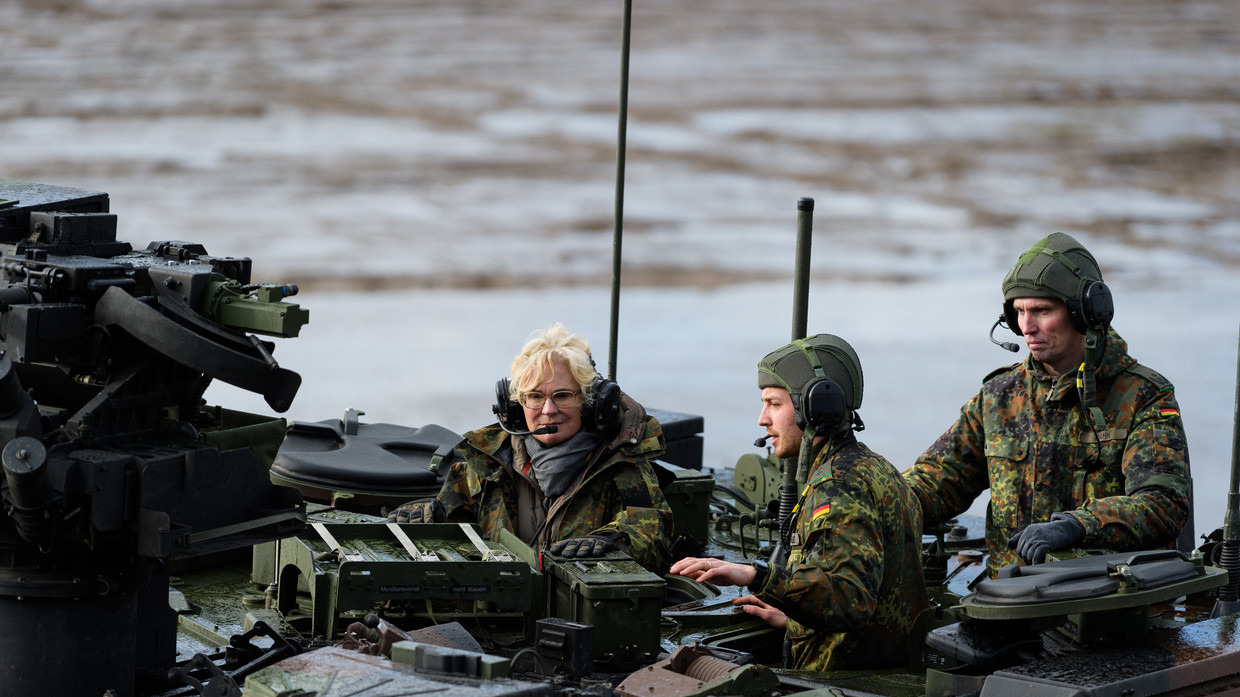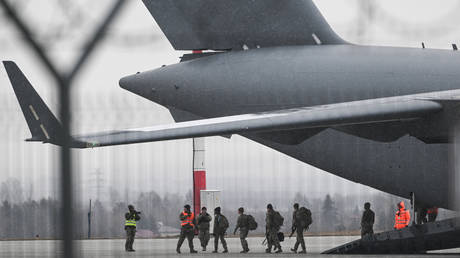Germany’s Defense Minister Christine Lambrecht announced the upcoming deployment of an additional force of 350 German soldiers to Lithuania during her visit to the Munster Training Area in Lower Saxony on Monday.
The troops will reinforce a NATO battle group stationed in the Baltic country, joining the contingent of about 500 German soldiers already deployed there.
“With this, we are strengthening our contribution to NATO’s eastern flank and sending a clear signal of determination to our alliance partners,” Lambrecht stated, assuring Germany’s NATO partners that they “can rely on us.”
The soldiers will be sent to Lithuania “within a few days,” the minister added, revealing that she had already informed the country’s parliament of the decision.
The deployment comes amid soaring tensions between the US-led NATO military bloc and Russia, centered around Ukraine, as well as the NATO troops buildup in Eastern Europe. Last week, US President Joe Biden ordered thousands of troops to be moved to Poland, Germany, and Romania, citing allegations that Moscow might mount a full-scale attack on Kiev.
On Sunday, US National Security Advisor Jake Sullivan claimed the potential attack was a “very distinct” possibility, and “could happen as soon as tomorrow or it could take some weeks yet.”
Over the past few months, top Western politicians and media outlets have repeatedly accused Moscow of harboring plans to invade its neighbor. No solid evidence to back up the claims has emerged, though.
Moscow has vehemently denied the accusations, maintaining it has had zero plans to attack Ukraine or anyone else. It has also blasted the close surveillance of the movement of its troops, stressing that it had every right to move the military within its own territory. Russia has also criticized the new NATO buildup in its eastern flank, accusing the bloc of deliberately ramping up tensions while calling for “de-escalation.”
“It’s obvious that these are not steps aimed at de-escalating tensions but, on the contrary, they are actions that lead to increasing tension,” Kremlin spokesman Dmitry Peskov said last week.


